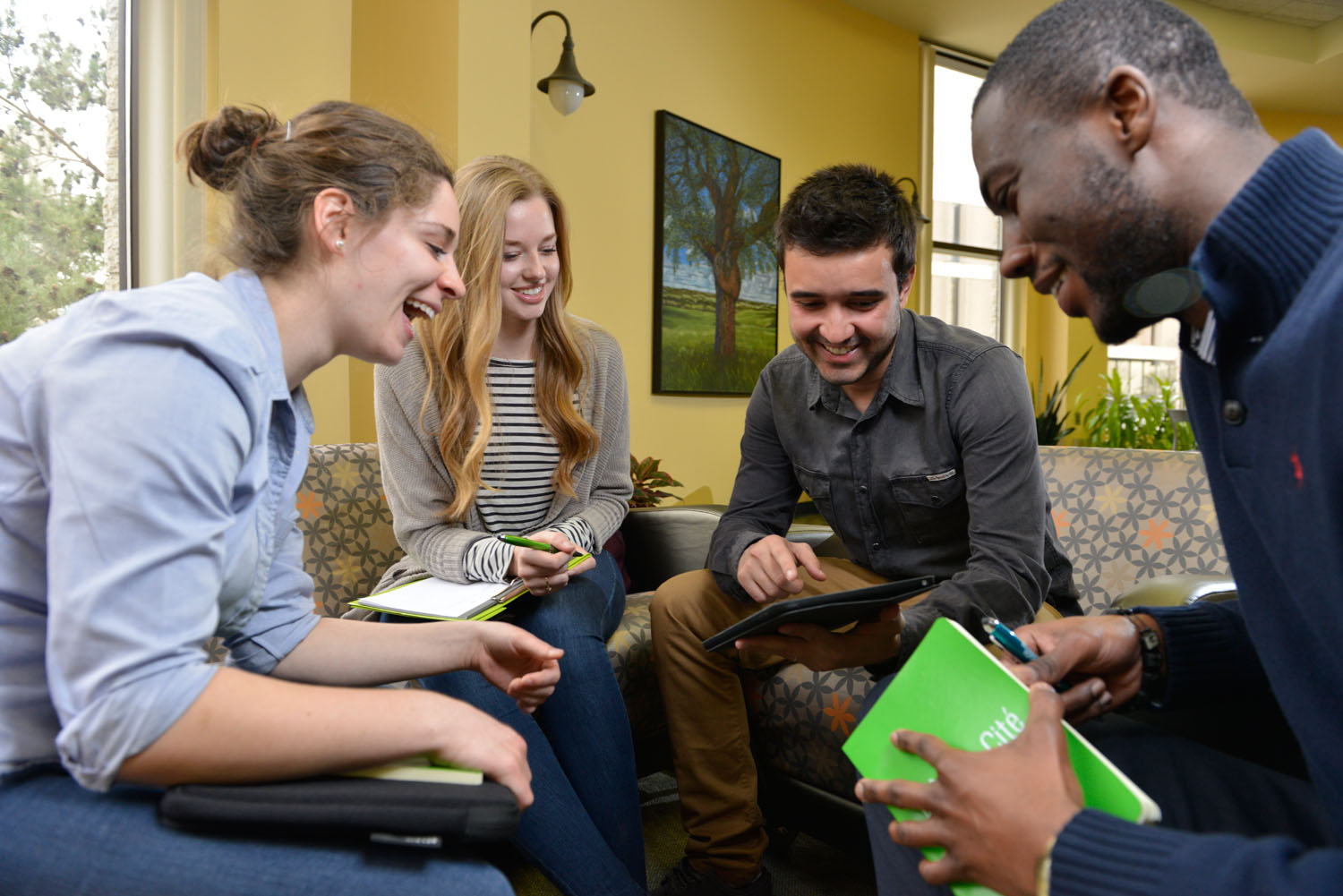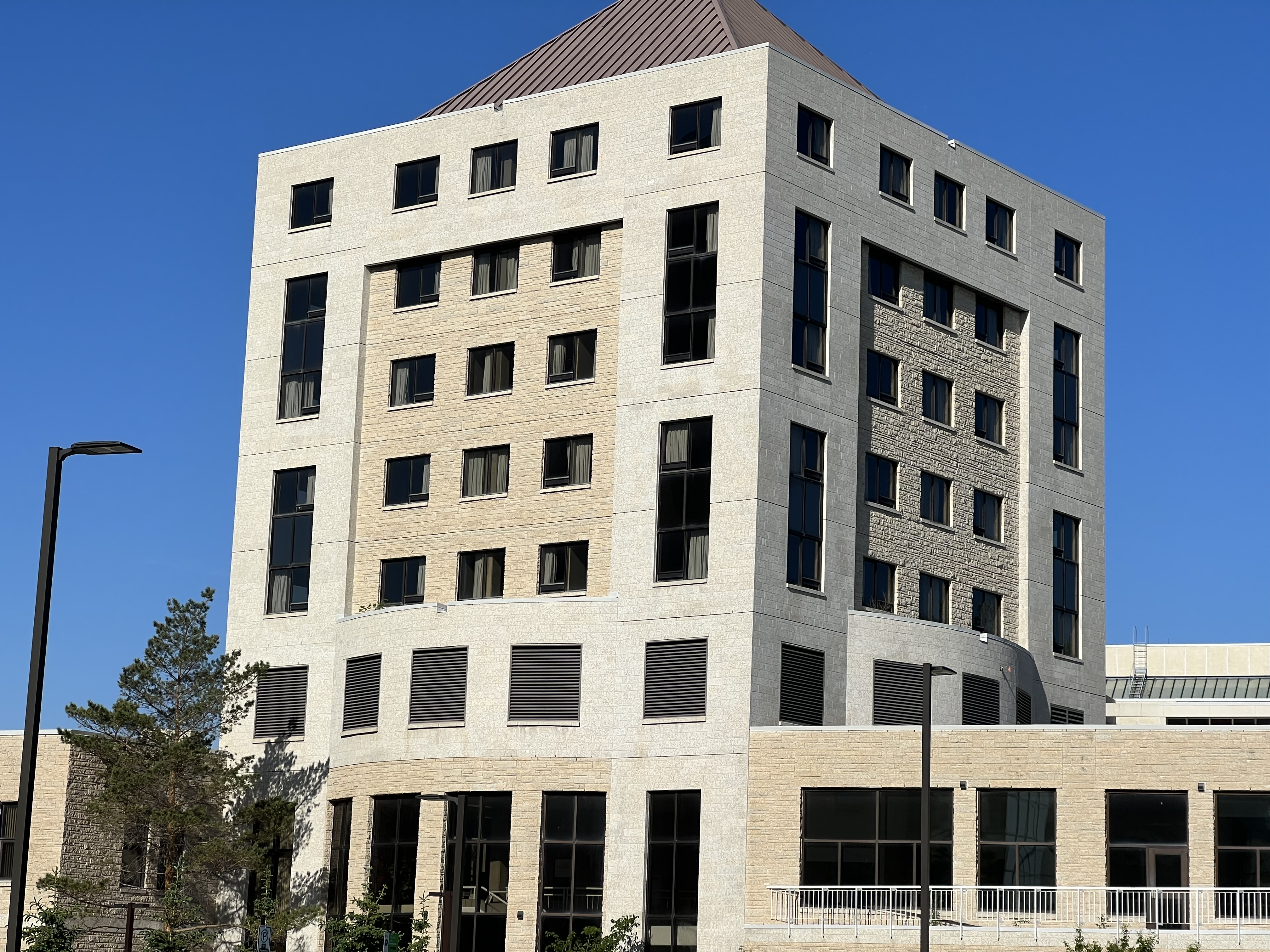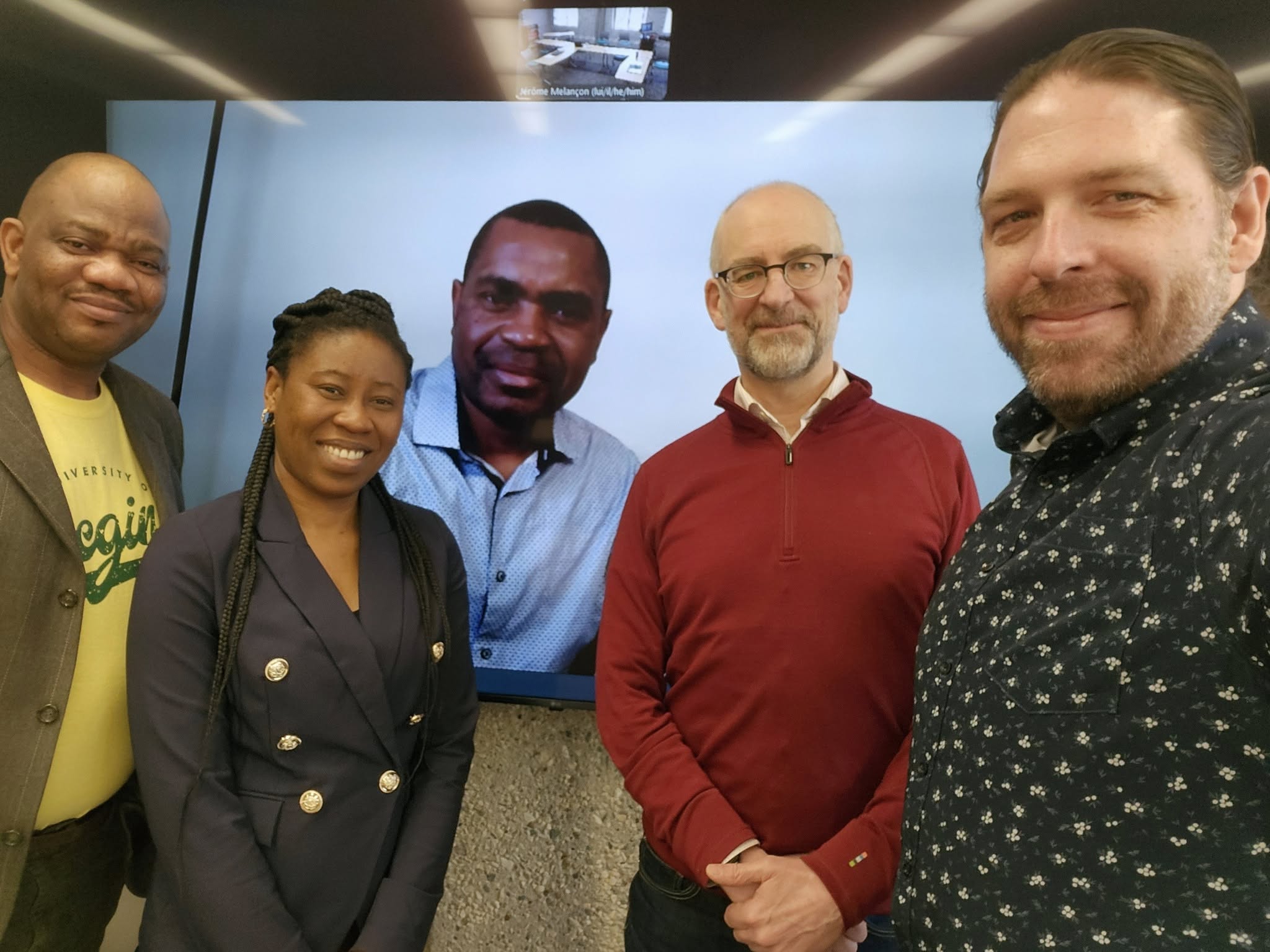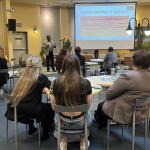Master of Arts (MA) in French and Francophone Intercultural Studies
Offering an intercultural, experiential, open, interdisciplinary approach, our master’s programs help you develop your skills:
- in communication (writing and presentations in French)
- in research (data use, analysis and discovery)
- in community and intercultural relations
The master’s is rooted in the Fransaskois experience while exploring issues affecting the Francophonie in Western Canada, Quebec, Acadia, Africa and the rest of the world. The program’s interdisciplinary approach allows the various facets of a theme to be explored beyond disciplinary boundaries.
Choose the path that best suits your needs:
Course-based Path
- 30 credits
- 8 courses
- Work experience in French (unpaid)
Thesis-based Path
- 30 credits
- 4 courses
- The research topic is developed according to your interests with personalized guidance from your thesis advisor.
Master’s Certificate
- 12 credits
- 4 courses
- The master’s certificate is a diploma that also offers the opportunity to transition quickly and easily into a course or thesis-based master’s program.
The three paths are offered on site with flexible schedules, including evening and weekend courses. In this way, La Cité hopes to allow students the opportunity to pursue professional and personal projects simultaneously.
Why Study at La Cité?
- A multicultural learning environment
- A vibrant connection with Francophone organizations
- Free in-person and virtual tutoring services
- Numerous scholarships
Make the most of your experience at La Cité thanks to its research centre. The Centre canadien de recherche sur les francophonies en milieu minoritaire (CRFM) is at the heart of research on Francophone communities in Saskatchewan.
Develop your master’s path by choosing from one or more of our fields of study:
- Social sciences: political studies, sociology
- Languages: applied linguistics, sociolinguistics, translation
- Humanities: philosophy, literature, history
Course offerings may change each year to reflect professors’ research interests
Testimonials
Degree options and possible paths
A flexible course schedule: study full or part-time
Course-based Master’s Program
Diversify your knowledge, establish connections between topics and disciplines, develop your skills
- Perspectives on the study of Francophone communities: immersion in the situation of Francophones in Saskatchewan and Canada
- Community internship: immersion in Francophone life and work experience in French (unpaid)
- Seminar: for collaborative work and exposure to research by professors from the University of Regina as a whole
- Bibliography and methodology: everything you need to succeed!
- A choice of courses in various disciplines
* In addition to FRN 801, FRN 802, FRN 803 and FRN 900, students must take at least 6 credits offered by La Cité. Students may take up to 9 credits outside La Cité, of which only 6 credits may be in English.
** Students who are unable to complete FRN 900 may take FRN 890 with prior approval.
Total Courses (8) | Credit Hours (30) |
| FRN 801 (required course) | 3 credits |
| FRN 802 (required course) | 3 credits |
| FRN 803 (required course) | 6 credits |
| FRN 8XX | 3 credits |
| FRN 8XX | 3 credits |
| FRN 8XX | 3 credits |
| FRN 8XX* | 3 credits |
| FRN 8XX* | 3 credits |
| FRN 8XX* | 3 credits |
| FRN 900 | 3 credits |
Possible Routes
The following program routes are suggested timelines; individual circumstances may be taken into account.
Course-based Master’s – full-time route
| Year 1 | |
Semester | Suggested Courses |
Fall | FRN 801 FRN 8XX |
Winter | FRN 802 FRN 8XX |
Spring | FRN 803: Internship (80 hours) |
Summer | FRN 803: Report |
| Year 2 | |
| Semester | Suggested Courses |
| Fall | FRN 900 FRN 8XX |
| Winter | FRN 8XX FRN 8XX |
Course-based Master’s – part-time route
| Year 1 | |
| Semester | Suggested Courses |
| Fall | FRN 801 |
| Winter | FRN 802 |
| Spring | FRN 803: Internship (80 hours) |
| Summer | FRN 803: Report |
| Year 2 | |
| Semester | Suggested Courses |
| Fall | FRN 8XX |
| Winter | FRN 8XX |
| Fall and Winter | FRN 900: Seminar |
| Fall or Winter | FRN 8XX |
| Spring or Summer | Electives |
| Year 3 | |
| Semester | Suggested Courses |
| Fall | FRN 8XX |
| Year [R1] | FRN 8XX |
Thesis-based Master’s Program
Become a specialist in a subject and explore a question in depth
- Three elective courses to provide you with material for reflection
- One-on-one work with your thesis advisor
- A research topic developed according to your interests
- Research and teaching assistantships
- Bibliography and methodology: everything you need to succeed!
* Except FRN 803, FRN 890 and FRN 900
Total Courses (4) | Credit Hours (30) |
| FRN 801 | 3 credits |
| FRN 8XX | 3 credits |
| FRN 8XX | 3 credits |
| FRN 8XX | 3 credits |
| FRN 900 | 3 credits |
| FRN 901 (Thesis) | 15 credits |
Possible Routes
The following program routes are suggested timelines; individual circumstances may be taken into account.
Thesis-based Master’s – full-time
| Year 1 | |
Semester | Suggested Courses |
Fall | FRN 801 FRN 8XX |
Winter | FRN 802 FRN 8XX |
Spring | FRN 901 thesis research and writing |
Summer | FRN 901 thesis research and writing |
| Year 2 | |
| Semester | Suggested Courses |
| Fall | FRN 900 seminar FRN 901 thesis research and writing |
| Winter | FRN 901 thesis research and writing |
Master’s Certificate
Discover your interests and passions
- Perspectives on the study of Francophone communities: familiarize yourself with the realities, use data, discover challenges and opportunities
- Three elective courses for a wide range of experiences and skills
- Easy transition into the thesis or course-based master’s program
* Except FRN 803, FRN 890 and FRN 900
Total Courses (4) | Credit Hours (12) |
| FRN 802 (required course) | 3 credits |
| FRN 8XX* | 3 credits |
| FRN 8XX* | 3 credits |
| FRN 8XX* | 3 credits |
Possible Routes
These are suggested timelines; individual circumstances may be taken into account.
Certificate – full-time route
| Year 1 | |
| Semester | Suggested Courses |
| Fall | FRN 802 FRN 8XX |
| Winter | FRN 8XX FRN 8XX |
Certificate – part-time route
| Year 1 | |
| Semester | Suggested Courses |
| Fall | FRN 802 |
| Winter | FRN 8XX |
| Year 2 | |
| Semester | Suggested Courses |
| Fall | FRN 8XX |
| Winter | FRN 8XX |
CRFM Research Centre: a Team to Guide You
Members of the Centre canadien de recherche sur les francophonies en milieu minoritaire (CRFM) conduct multidisciplinary research on various aspects of Francophone groups and communities in Canada and around the world. Members have their own particular fields of expertise and study other issues that may be of interest to you.
The CRFM also offers research internships, no matter what your place of study.






